This month sees our first feature on people and institutions doing great conservation work. For the Wild Side’s very first Conservation Spotlight, we meet Joal Ascalon, the passionate Executive Director of the SEA Institute, a marine conservation foundation working to promote awareness and conservation of the Verde Island Passage (VIP), regarded as the world’s Center of Marine Biodiversity. SEA stands for Science, Education and Advocacy, the foundation’s key programme areas.
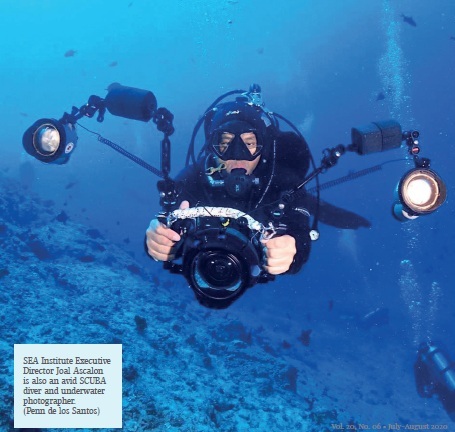
Teeming with nature
Bound by Batangas, Mindoro, Romblon and Marinduque, the Verde Island Passage is home to coral reef, mangrove and seagrass ecosystems and their plant and animal inhabitants. Some of those are unique to the VIP with more species waiting to be discovered by scientists.
Rappler reported that the California Academy of Sciences (CAS) discovered over 100 new marine species in the VIP in 2015.
Habitat galore
“The natural bounty of the VIP is what attracts an ever-growing population and increasing economic activity from tourism, shipping and fishing,” explains Joal. That the VIP’s marine habitats have managed to survive despite increasing human pressure can be attributed to its biodiversity, providing important lessons for conservationists.
Habitats which have higher diversity and more complex food webs, with more species playing similar roles, for example, are more resilient to stress than habitats that are not as diverse. Scientists have been studying the VIP for many decades to understand what factors lead to increased biodiversity. They then try to apply these lessons elsewhere.
A group of scientists from CAS realized the need to raise awareness of the VIP’s importance and fragility with its direct stakeholders – the people and communities who live and benefit from it – to preserve and protect it for future generations.
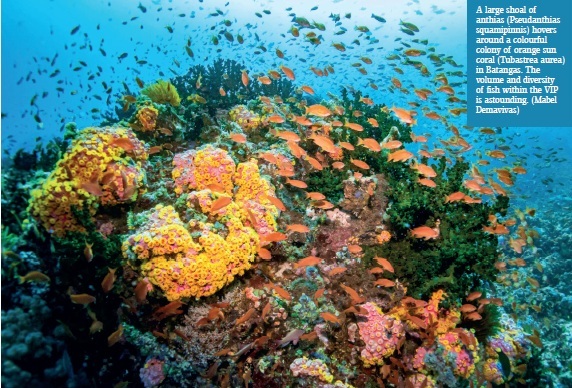
Help for the haven
CAS scientists Dr. Terry Gosliner and Dr. Meg Burke approached Gina Lopez, then Chairperson of the ABS-CBN Foundation, to ask for her help in establishing a local conservation initiative for the VIP. At a meeting at CAS in San Francisco. Gina turned to her sister Berta Lopez-Feliciano and Berta’s husband, Ting Feliciano, suggesting that they take the lead for the initiative.
Berta and Ting, being avid scuba divers, agreed and turned their efforts to raising support from a diverse group of scientists, conservationists, videographers, artists, and ocean lovers. SEA Institute was soon launched and, like the VIP, continues to thrive with help from a network of volunteers and institutional partners.
Today, the foundation works with individuals, groups and organizations that are active in the fields of science, education, and action-oriented advocacy, particularly within the VIP. “We have a Citizen Science initiative with De La Salle University and the California Academy of Sciences to train community volunteers to monitor the health of their coral reefs,” says Joal. “Using snorkel and free-dive methods instead of expensive scuba equipment, our citizen scientists collect data on coral cover, fish and invertebrate diversity, plus shore trash to warn of potential threats such as crown-of-thorns starfish infestations and coral bleaching.
“Our education program is centered around EcoCamps by the SEA, our outdoor and science camps where students and adults can explore the VIP’s amazing marine habitats by snorkeling in coral reefs and seagrass beds or walking through mangrove forests. Campers have fun learning about the beauty and uniqueness of the VIP but also get important lessons on how they can help protects the VIP’s fragile ecosystems.”
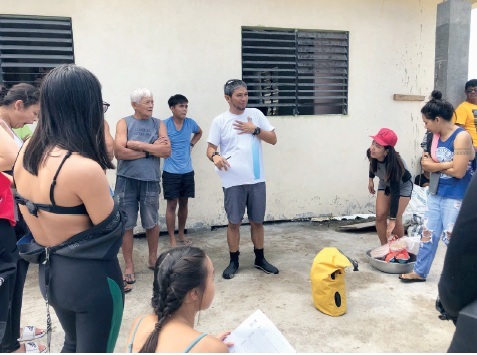
Advocating conservation
Lastly, SEA Institute works with coastal communities on livelihood and outreach projects which can foster advocacy for direct conservation projects such as establishment of Marine Protected Areas (MPAs), alternative livelihood programs, and solid waste management.
“Rather than reinventing the wheel and needlessly duplicating efforts, we leverage and synergize work already being done by players both large and small within our theater of operations,” adds Robert Suntay, President of SEA Institute. “From removing coral-eating crown of thorns starfish to abandoned fishing nets which smother and kill coral, we work with allies to develop and continuously enhance community-based outreach programmes.”
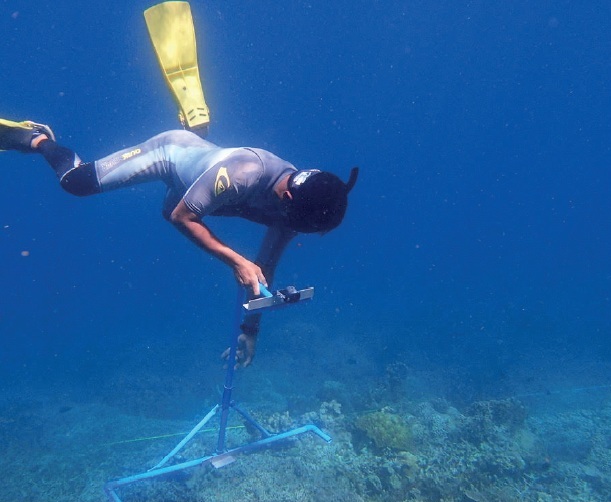
SEA Institute has high hopes for the future. “We envision a network of citizen scientists and advocates in the coastal communities of the VIP actively working to protects its diverse habitats and species,” says Joal. “The people who benefit from this rich biodiversity will suffer the most with its loss – but the VIPs success will benefit every Filipino, perhaps everyone on the planet. We hope to expand our programmes to every corner of the VIP but its size and diversity means that we have to reach out to as many stakeholders as we can.”
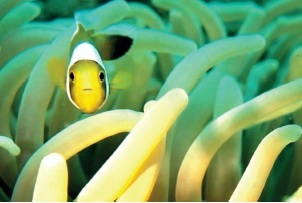
As in a complex ecosystem, everyone can play a role: a citizen, scientist guarding a coral reef, an educator opening young minds to the beauty of the sea, a young mom advocating for community compost bins to reduce pollution. Although we live on land, our very survival depends on the ocean.
SEA Institute is modifying its modules for online learning while simultaneously pushing for the integration of marine science lessons into school curricula. Sea lovers who want to support Joal and SEA Institute can message seainstitutevip on Facebook or sea.institute on Instagram.
This appeared in Animal Scene magazine’s July-August 2020 issue.
You might want to read:
– Animal mermaids in the Philippines: Getting to know the cows of the sea
– Aquarium celebrates sea otter’s 20th birthday with seafood cake and live music
– Tips to keep your pets safe during storm season






